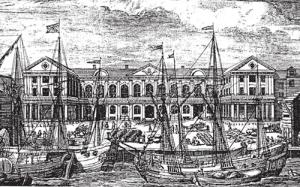English merchant culture: the overseas trader in state and society, 1660-1720

This project studies the influence of the merchant classes on the politics and society of late-Stuart England. Historians have for some time acknowledged the importance of economic developments in this age of financial and commercial revolution, which saw the nation transformed into a major international power. However, relatively little is known of mercantile opinion and its political and cultural impact. In order to emphasis the dynamic force of traders in this period, the project examines not only the activity of traders in the public sphere, but also their wider, personal associations, which fixed their place in state and society, and remain the key to understanding their distinctive culture.
The course of research has been structured to recreate the particular experience of the merchant classes, taking advantage of a wide array of largely untapped sources. Analysis will be undertaken of mercantile education, travel, material culture, and both personal and professional connections. The principal arenas of merchant activity will also be examined: the household, the workplace, leisure-time, religious observance and public service (from parish to Parliament). Research on London merchants dominate the project, but comparative study of the trading communities of provincial centres such as Newcastle, Liverpool, York and Norwich will also be undertaken in order to assess the influence of London merchant culture on the nation. Moreover, the project will seek comparisons with the development of the merchant sector in other European countries.
Publications
Perry Gauci, '"For want of smooth language": Parliament as a point of contact in the Augustan Age', Parliamentary History, XVII (1998), 12-22; Perry Gauci, The politics of trade: the overseas merchant in state and society, 1660-1720 (Oxford University Press, 2001).
Reports
CMH Annual Reports 1994-5, 1995-6, 1996-7, 1997-8, Tenth Anniversary Conference paper
Project details
Researcher: Peregrine Gauci, B.A., M.Phil., D.Phil.
Funded by: The Leverhulme Trust (1 October 1995-30 September 1998)
Amount Awarded: £89,970
